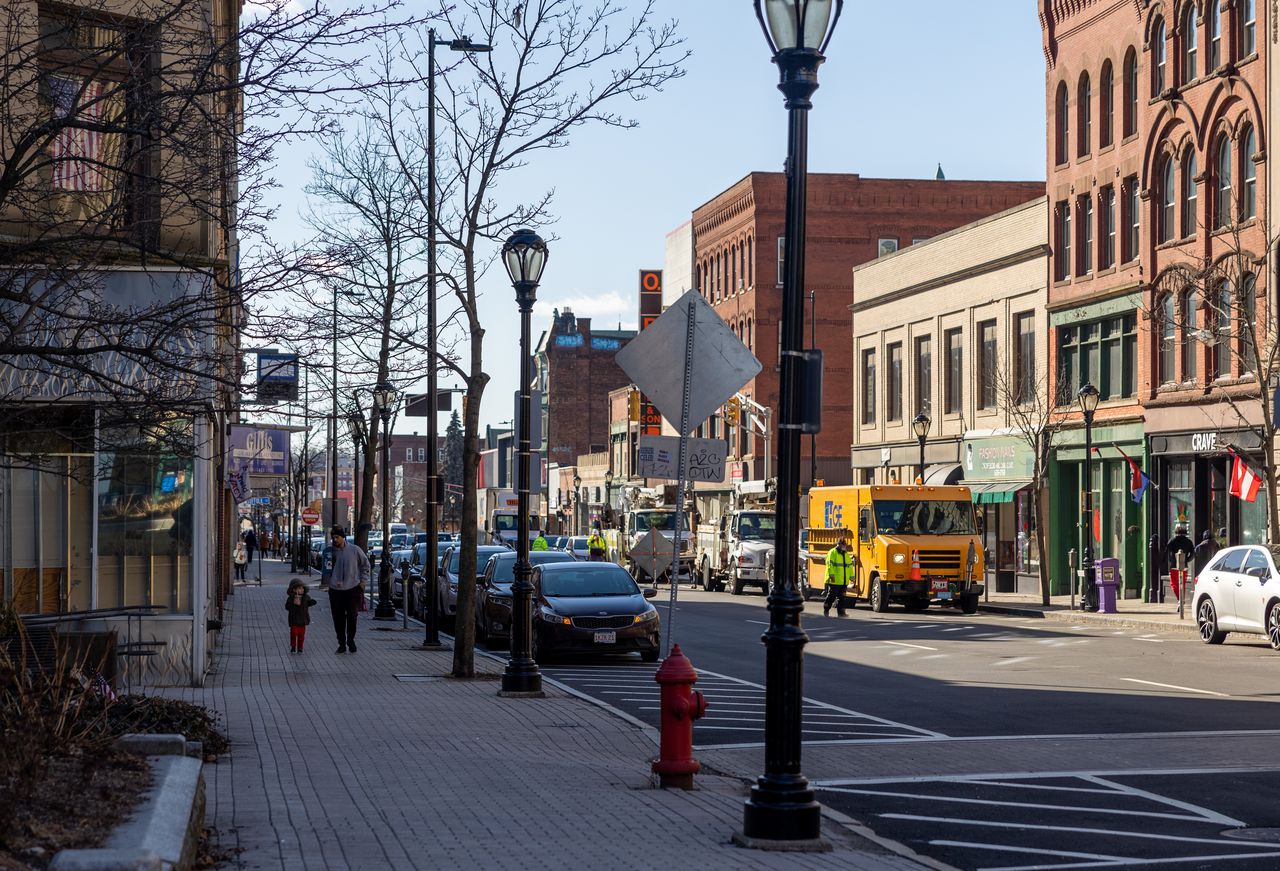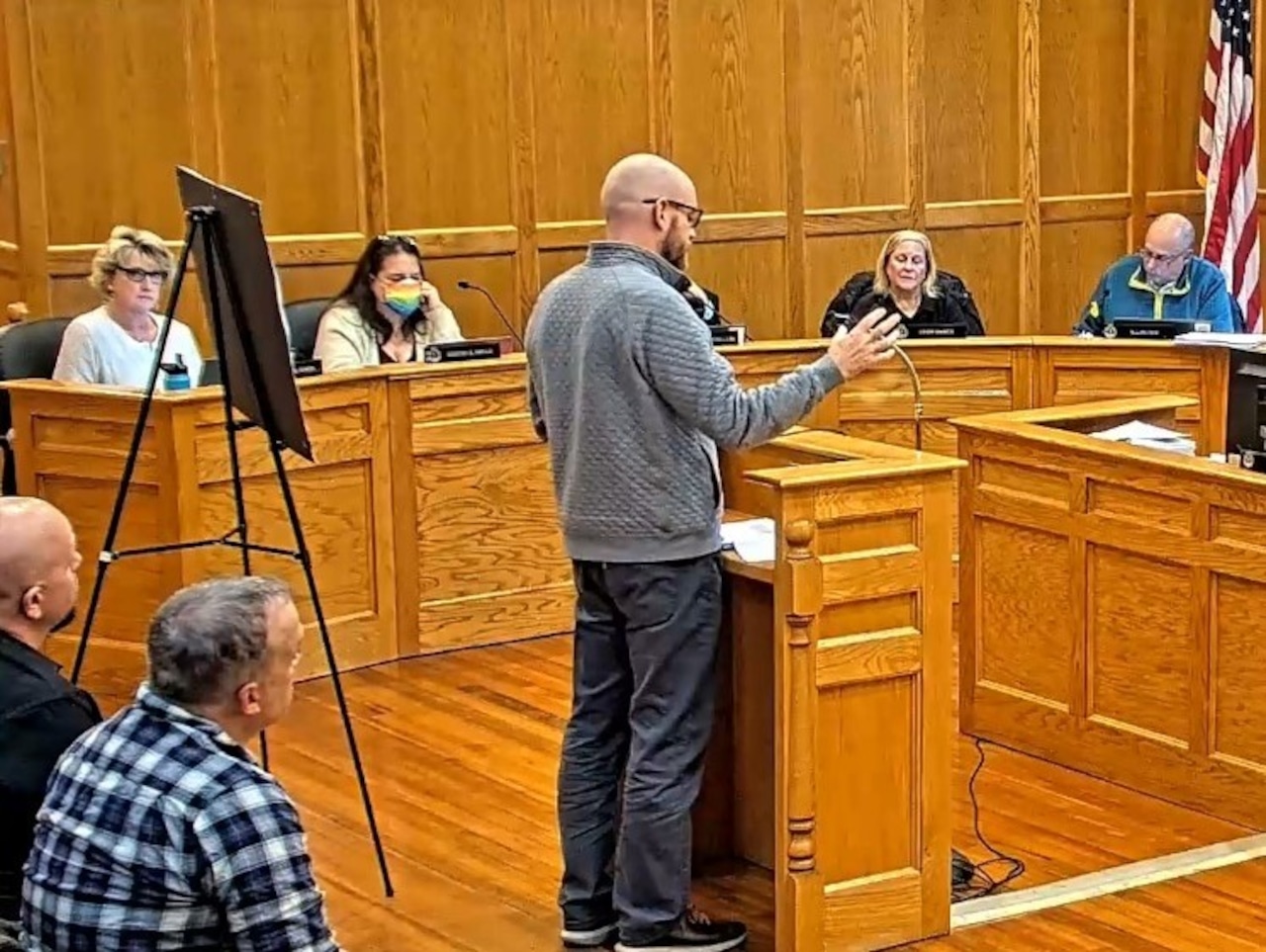
HOLYOKE — City councilors are urging small business owners to apply for a special permit to operate home-based businesses, one of the largest sectors of commerce in the Pioneer Valley.
“Nowadays, a lot of entrepreneurs don’t need a large storefront, which can often come with expensive overhead. So, for many, if they can operate their business that way, it’s just easier,” City Councilor Tessa R. Murphy-Romboletti wrote to The Republican on Monday.
In a meeting earlier this month, Murphy-Romboletti, chair of the council’s Development and Governmental Relations subcommittee, said resident Marisol Figueroa met with the panel to share plans for new nail salon business.
At the Oct. 3 meeting, Murphy-Romboletti said Figueroa told the panel that her plan is to run the nail salon out of a room in her house, with no other employees or plans of expansion, and will limit her clientele to one per hour. In addition, Figueroa showed the panel a video on her phone of the small room in her house, where she will conduct her work.
After some discussion, the full council granted her a special home-based business permit for her 222 West Franklin St. residence, after being recommended by the subcommittee.
“We love seeing them come in. We want to expand business wherever we can, even in residential neighborhoods. That is why we have special permits,” City Councilor David K. Bartley said at the meeting.
Small business is big business
In the Pioneer Valley, small businesses, like Figueroa’s salon, represent the largest group of commercial ventures, with about 51% of businesses with one to five employees being located here, according to a pre-pandemic Pioneer Valley Planning Commission economic development report and data from 2021.
Data from 2021 shows that commercial outfits of one to five employees account for 6,539 businesses in Hampden and Hampshire counties, Molly Jackson-Watts, the principal planner and manager of data, education and municipal technology at the commission, told The Republican. The 2021 data in the economic development report came from a U.S. Census Bureau’s County Business Patterns Survey on business sizes.
Murphy-Romboletti is also the executive director at EforAll, a nonprofit group focused on helping minority entrepreneurs get businesses started, including by offering co-working space.
“When starting a business, there is not really a road map. (Eforall advisors) work with the municipalities to be a bridge in effort to eliminate the barriers in the application process,” Murphy-Romboletti said.
She said, since the pandemic began, small business applications have almost doubled.
During the pandemic, lives and workplaces changed, noted Murphy-Romboletti. For example, shared workspaces are trending since the COVID-19 pandemic.
“It is an interesting time for entrepreneurship,” she said. “Many people brought their businesses online.”
EforAll tries to encourage home-based businesses to not rush into opening a brick and mortar, Murphy-Romboletti said, as fledgling entrepreneurs don’t need lots of space, and it can take a long time for a business to turn a profit.
Murphy-Romboletti said making sure business owners understand and follow the process to open a home-based business is important for many reasons, such as insurance, zoning and additional permitting, which might be needed.
Sometimes, in fact, an entrepreneur might not be able to start a home occupation, she said. A home-based business might not be permitted in certain town or city zones, or maybe the business owner is not the property owner, and their landlord doesn’t want a home-based business on the property.
In cases like these, a shared professional workspace might be the best bet, Murphy-Romboletti told The Republican.
Tax implications
In Holyoke, Bartley said having a home-based business can affect residential taxes: a portion will be adjusted to the city’s commercial business rate. The current residential tax rate is $18.76, and the commercial tax rate is $40.17 per thousand.
“From my perspective as a city councilor who wants to maximize benefits to city, it seems it’s a win-win for the petitioner (to be allowed to have a commercial business at home) and the city (to be allowed to collect a higher property tax from a residential setting),” Bartley wrote in an email to The Republican on Tuesday.
Murphy-Romboletti said she encourages home-based business owners to talk to an accountant to make plans for the difference in the tax rates and insurance.
She noted that, although the commercial rate is higher, saving overhead capital and tax write-offs can offset the cost.
A good example
Bartley said during the Oct. 3, another special permit for a home-based business was approved for a hair salon three years ago.
The salon on Longwood Avenue has had tremendous success, Bartley said. It was approved with special conditions, which included hours of operation, with limits on signs, storage and parking.
Bartley said it is very important that a special permit petitioner should keep any disruption of neighborhood life to a minimum, adding that Figueroa and her nail salon won’t cause a stir.
“She just wants to run a business, and we are happy to support it,” he said.
A copy of the ordinance for a home occupation permit can be found at the city clerk’s office.






